Detroit: Become Human (D:BH), developed and released by Quantic Dreams in 2018, follows three main protagonists: Android freedom fighter Markus, rent-a-terminator Connor, and the subject of today’s discussion, the housekeeper Kara.
I, frankly, love this game, and while I know before I discussed my overarching problems with the story’s narrative, make no mistake, I very much enjoy playing and replaying various sequences. But equally important to a story are those who carry a story and today I want to look at one of the characters I mentioned above: Kara.
Beware that the following content contains heavy spoilers, so if you haven’t finished your gameplay, go and do so! And if what I’ve said so far sounds like your kind of entertainment, you can purchase the game through PlayStation, or if you’re a PC gamer, it is available through Steam and Epic Games.
Meet Kara
Kara has a long history. Not only is she actually the first point of view the audience is introduced to in game, but she was actually introduced to audiences over half a decade prior to the game’s release:
She’s the only character whose trials and tribulations aren’t pertinent to or influential to the main story. She doesn’t have special powers, or a grand destiny or egregious plot armor.
In fact, Kara is constantly trying to avoid danger, and from the get-go the player making the wrong choices or taking too much time can have devastating consequences. Which makes sense; Kara isn’t a hero, she’s a survivor. Compared to her fellow protagonists, Kara is just shy of being an NPC.
Which, granted, is something of a palate cleanser. When one character may or may not be a robotic messiah and another is Bryan Dechart’s face transposed on Agent Smith’s body, it can be refreshing to play through a more down-to-earth storyline.
The problem however, is when a character’s dimensionality is reduced so as to not outshine other characters. Does that mean Kara has no attributes that make her stand out? No, not at all. But it does mean that in D:BH’s narrative, Kara suffers from what I call ‘pen-capping’; that is, her story ends when…well, when the story ends.
But in order to talk about Kara’s story, we have to talk about Alice and the YK android series.
She’s A Real Girl
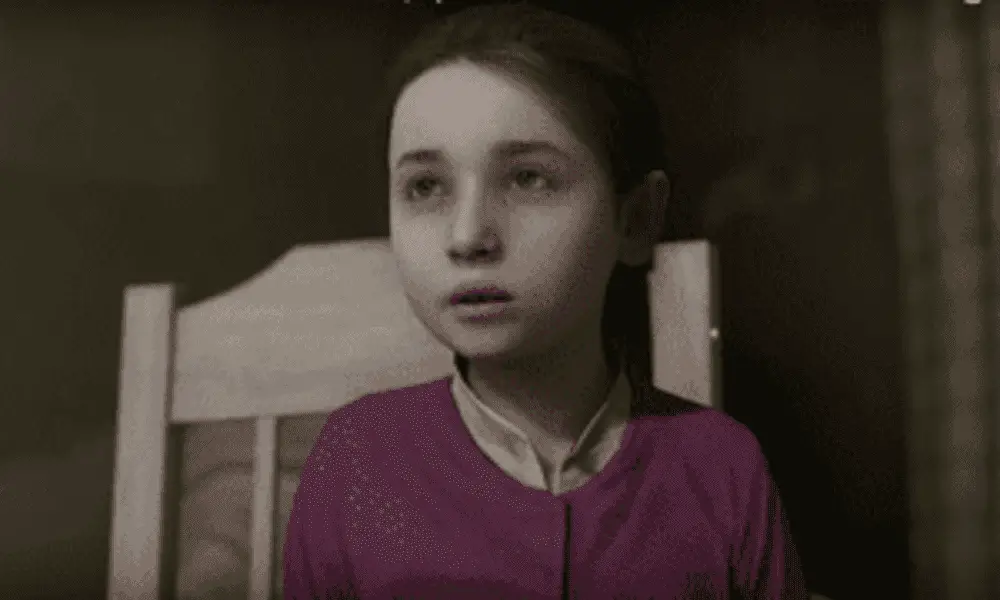
The YK series android is alluded to only a handful of times before we actually see one ourselves. During one of Marcus’ sequences, when the player is first encouraged to explore and talk to the runaway androids of Jericho, we see what appears to be a young child on the dank floor, barely moving.
Marcus (and the player) is informed that the android met the same fate as so many others, but with a twist: the robotic child was tossed in the garbage when it’s pseudo parents got tired of it. This is because the YK models (formerly known as the YK500) are very much used as props by wannabe or soon-to-be parents, who model it like their own child until otherwise.
Now, as someone who bawled my eyes out watching A.I. (and who still can’t read the Wikipedia page without tearing up), this nearly broke me. Looking past the obvious moral problems of buying a child and using it like a toy, and the sheer horror that these children never get to grow (imagine being a nine-year-old for the rest of your existence), there is the tongue-in-cheek commentary on eugenics being teased here. YK models can have various settings that make them more “realistic”—crying, being cold, getting sick—simply turned off by their “parents” for the sake of convenience.
In fact, one of the various articles in the game points out that the YK model, besides the growing unemployment rate, may be linked to the fictional Detroit’s declining birth rates. People are fulfilling their dreams of parenthood without having to actually do the hard job of parenting.
Which swings us back around to Alice.
Alice is introduced to us as the shy, young daughter of Kara’s owner, Todd. Todd is a scruffy, ill-tempered man, whose rage is stoked by constant drinking, heavy drug use, his loss of employment, and most importantly, the fact that his wife divorced him and took their daughter with her.
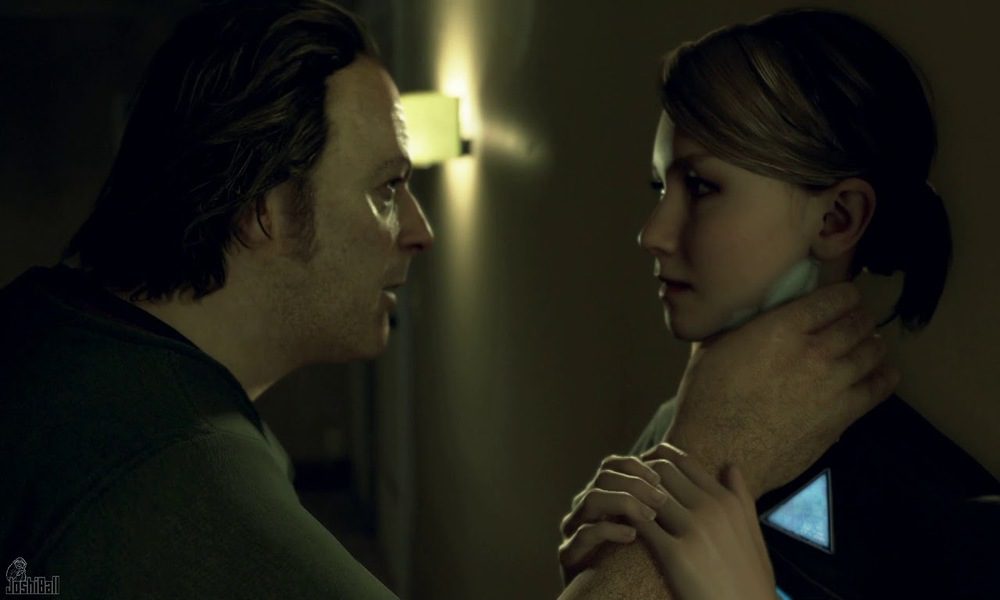
This cauldron of issues of course ends up boiling over.
Todd grows enraged one night and strikes Alice, triggering Kara’s deviancy. Through a tense sequence, the player can navigate the two to freedom, leaving the house of abuse behind.
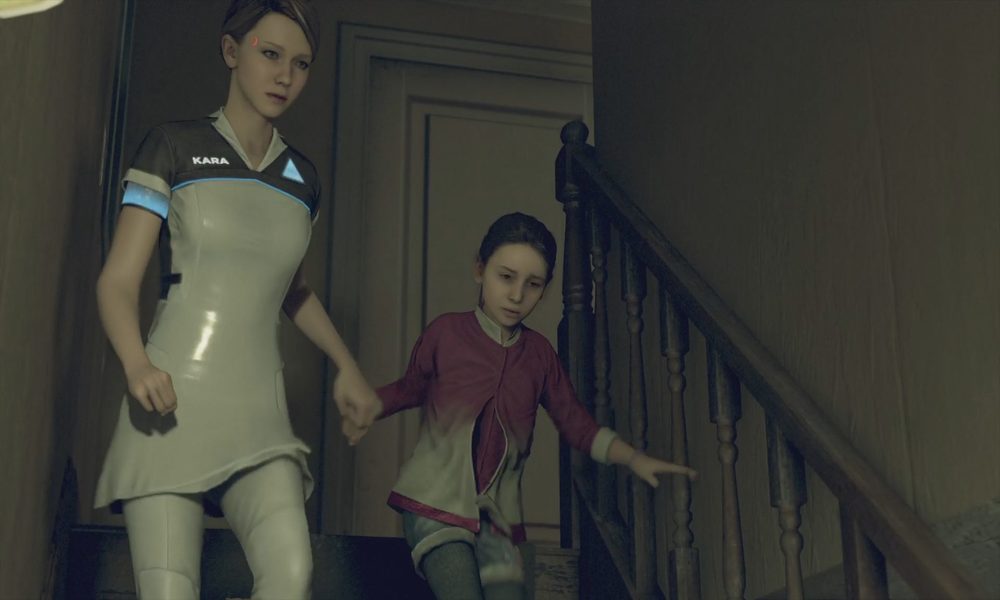
(Or they can murder Todd and then flee. Or get murdered themselves. Yes, that includes Alice. Yes, you can completely fail Kara’s story thirty minutes in. As I said, Kara’s plot armor is practically nonexistent.)
Narrative Descent
The two travel through Detroit, trying to survive and find safe passage to the android promised land — Canada, in this case. Along the way they pick up gentle giant Luthor from yet another house of horrors, that of android engineer Zlatko (who is basically a Sid from Toy Story who wasn’t traumatized at childhood), and meet a handful of other colorful characters: a legion of former amusement park androids all named Jerry, and sweet, strong Rose, the Harriet Tubman of Detroit.
It’s along this perilous journey that you discover that, as alluded to above, Alice, who has been so far assumed to be human, is in fact a YK500.
This is, in my opinion, the start of Kara’s downfall as a character. Because in making Alice an android, the narrative utterly traps Kara in a singular identity: Mother.
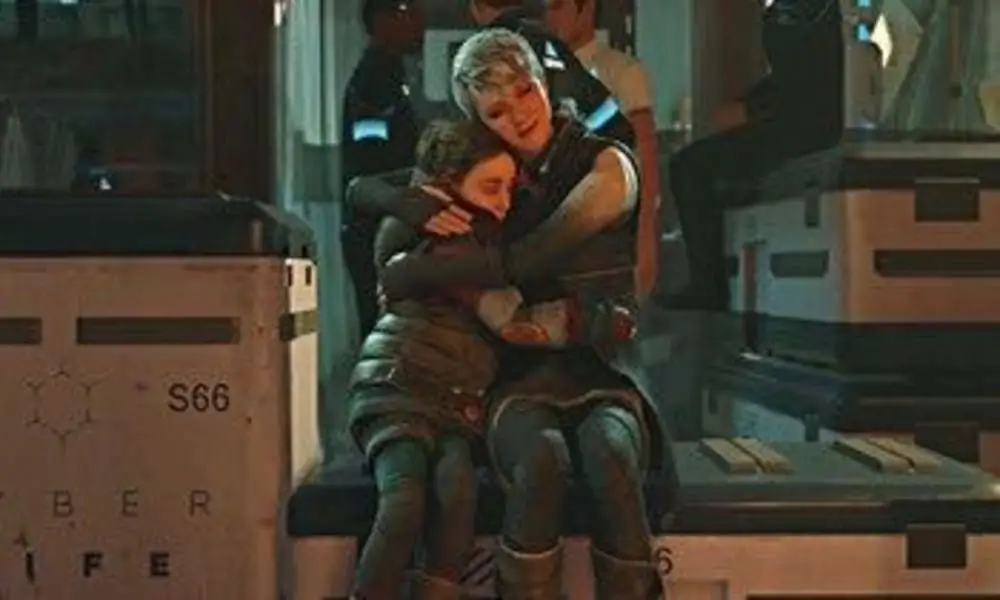
No, actually it’s worse. Alice, as a child android, can never really grow up. Never really mature, never really expand her horizons. She is forever a child and Kara is forever her caretaker. And despite not being a parent myself, I know enough about the concept to know that stagnation is not what the honor is about.
Parenthood is as much about caring and guiding someone as it being guided and taught yourself. It’s not just the child growing up; it’s you. All your expectations and ideas and dreams are never quite what you expect, and even the most experienced parent will discover something new—about themselves, about their child, about the world—each time around.
The narrative is trying to make a point about wanting all the good instead of the bad with the existence of the YK500s, but it then makes the mistake of turning around and doing the exact same thing to Kara and Alice.
I feel that a better, more heartfelt story would have been to keep Alice as a human. Not only does it mean Alice gets to actually grow up and live, but it would have added another element of humanity to the characters: bittersweetness.
It would have shown a glimpse of the future, of a time in which android and human are kin, regardless of the color of their blood. It would have been a fleeting glimpse at eventual heartache, yes, but also love and the greatest appreciation of it, of being able to love regardless of one’s past, or family being what you make it, and of not dreading the future, but appreciating the present.
What makes this entire storyline frustrating is that it’s actually done better not with Kara and Alice, but with Connor and his human partner, Lieutenant Hank Anderson.
Gruff Geppetto And Officer Pinocchio
Hank starts out much like Todd: he’s a drunkard with a violent streak, rude, condescending and he makes no secret of his willingness to personally smash and destroy any android that gets in his way.
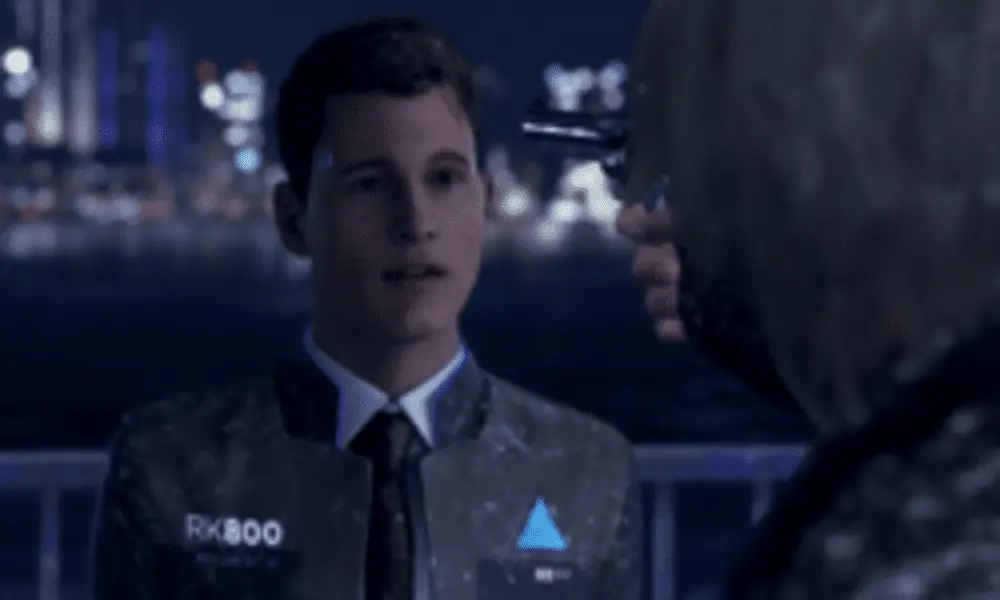
Over time, as you guide Connor towards deviation, and even in moments before, Hank shows a softer side. You discover his tragic backstory, his rampant depression, his callousness born of dashed dreams and good intentions.
Where Alice and Kara stagnate in their story, Connor and Hank grow. Connor sees Hank as a mentor and friend, and Hank grows to see Connor not as “a piece of plastic” but as an eager kid trying to do good and make his way in a turbulent world intent on keeping him a slave. The two even share a hug at the end. It’s a story that ostensibly ends, but also has room for further growth. It’s not the end of the line—it’s a single chapter that hints at a continuing story.
A Happy Ending Can’t Always Fly
All this is not to detract from the Kara storylines’ importance and intrigue. It’s still a gripping narrative that focuses on the “little people” in the midst of a societal upheaval. Kara’s segments are some of the most nail-biting and tense parts of Detroit. We get a better glimpse of the world from the lens of a survivor, and not just Robo Luthor Ghandi or a discount T-1000.
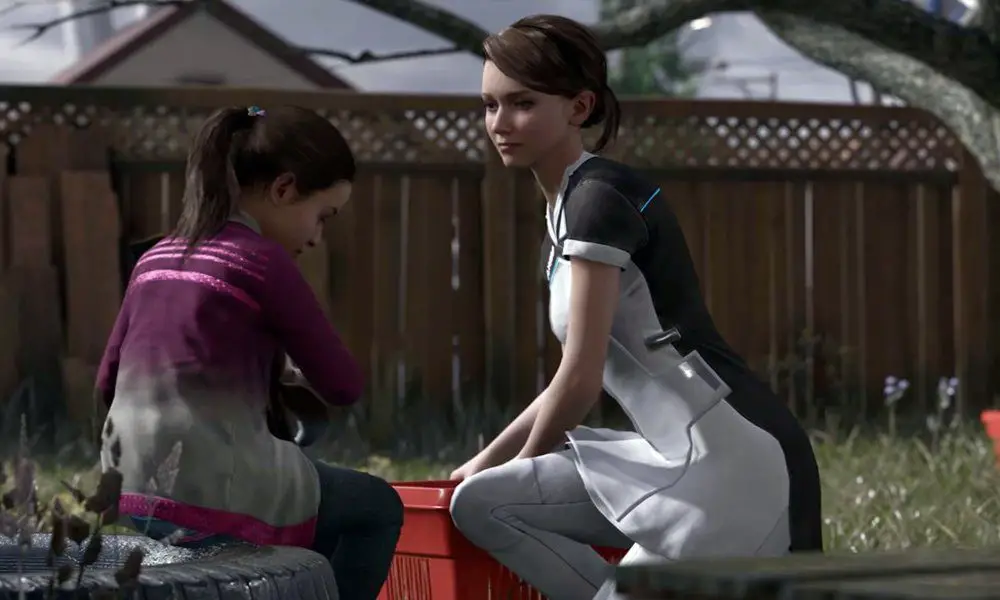
It’s just that in a narrative about “becoming human”, about gaining sentience and free will, one of its weakest points is the fact that it fails to model life when it simply plops a period on what should be implied to be a single chapter in life’s book.
Detroit: Become Human is a wonderful game, one of my personal favorites, and I personally recommend it for people to play over and over again. It’s simply disappointing when it picks up heavy topics concerning identity, humanity, discrimination, prejudice, and freedom and tries to balance them at the same time, and ends up juggling few of them successfully.
Images courtesy of Quantic Dream and Sony Interactive Entertainment.
Have strong thoughts about this piece you need to share? Or maybe there’s something else on your mind you’re wanting to talk about with fellow Fandomentals? Head on over to our Community server to join in the conversation!

